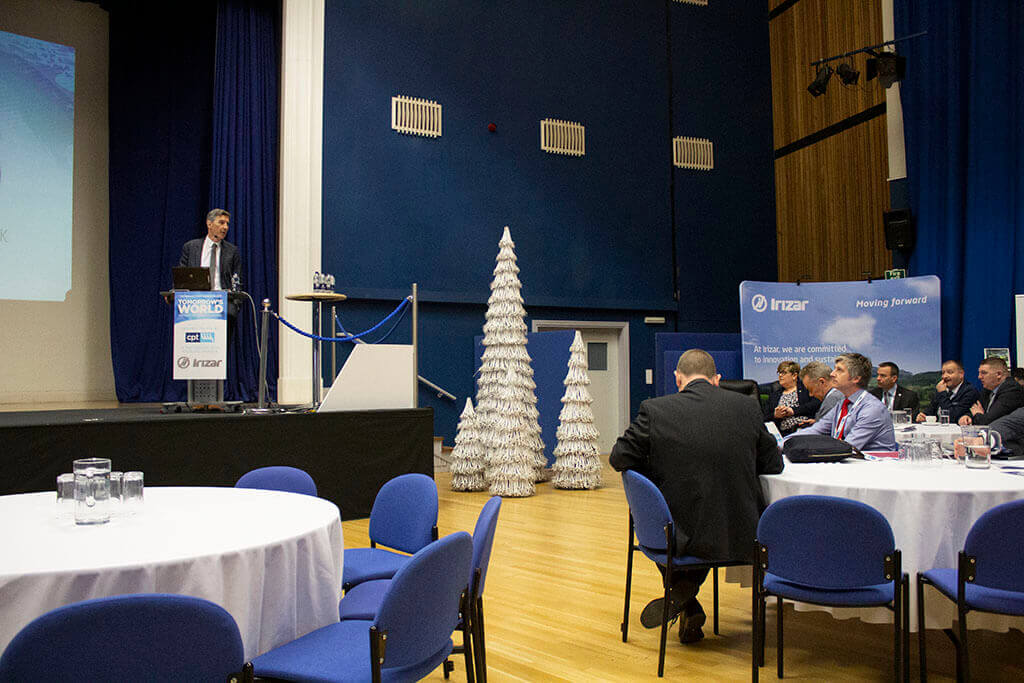The CPT’s annual Coaching Conference took the title of Tomorrow’s World this year, examining how the industry could change in the coming years. James Day reports
The Confederation of Passenger Transport held its annual Coaching Conference on 5 December, which was hosted in partnership with Irizar UK at the Pera Business Park in Melton Mowbray.
Irizar brought along five vehicles which it displayed outside. Four new dealer-white vehicles included a pair of Irizar i6 coaches and two higher-spec Irizar i6s vehicles. One of these was to Irizar’s 130 year anniversary specification, containing 53 seats to an alternative spec including different piping which corresponds to the vehicle’s curtains.
Also on display was a second-hand 63-plate Irizar i6, which had been retrofitted with a Baumot system to take it up Euro VI standards. The system replaced a retrofit from the now defunct Greenurban, and is in the process of gaining CVRAS accreditation.
Incoming CPT President, Steve Whiteway, played host on the day. He thanked the suppliers sponsoring and exhibiting at the event, which he called the unsung heroes of the industry.

By subscribing you will benefit from:
- Operator & Supplier Profiles
- Face-to-Face Interviews
- Lastest News
- Test Drives and Reviews
- Legal Updates
- Route Focus
- Industry Insider Opinions
- Passenger Perspective
- Vehicle Launches
- and much more!


